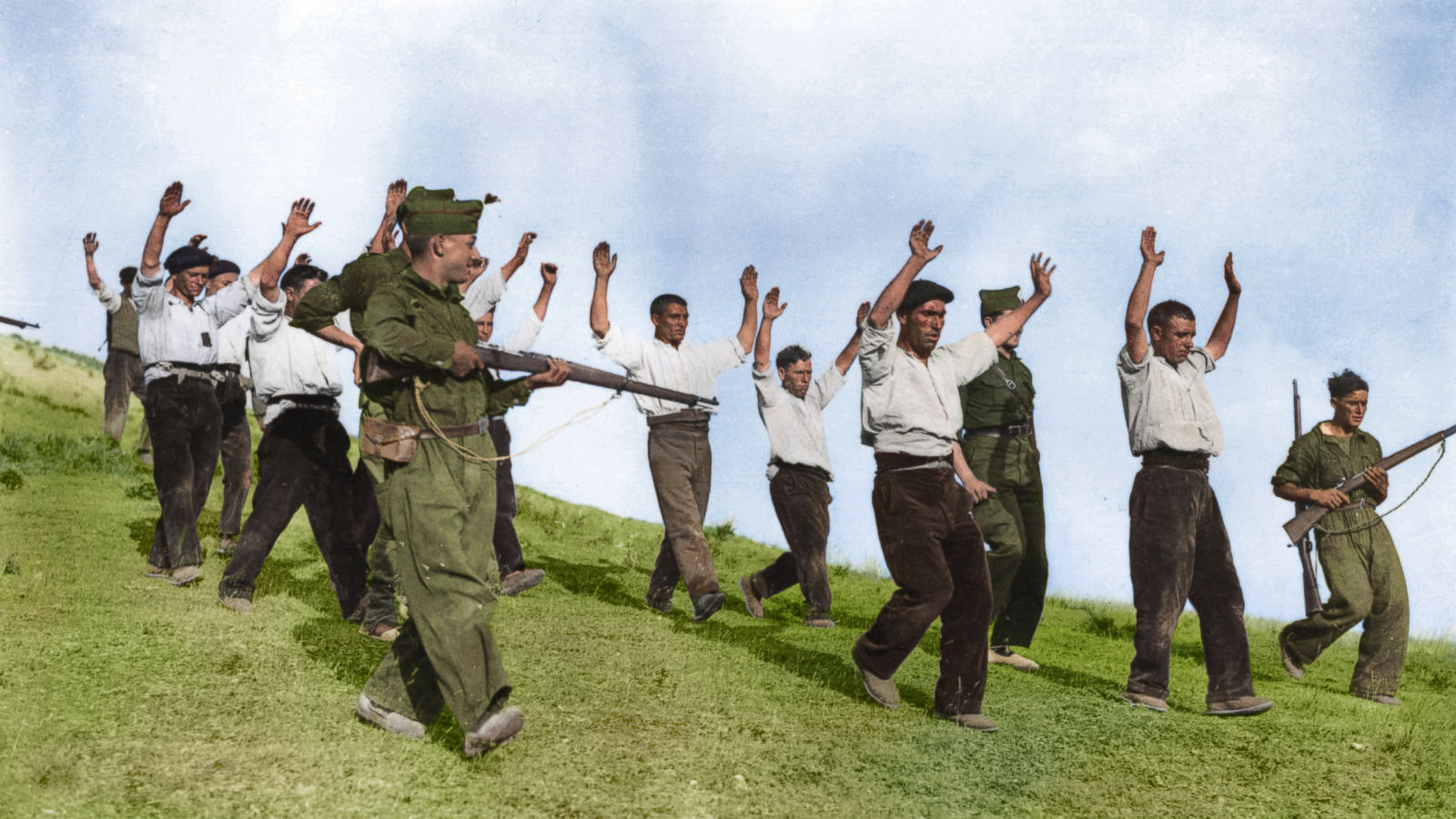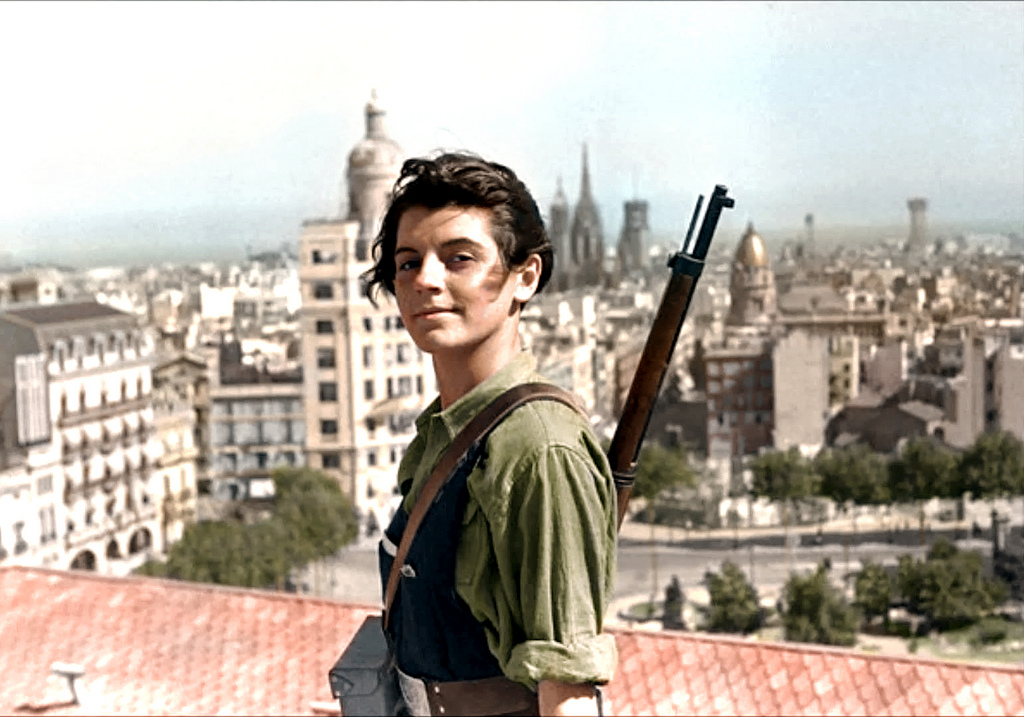Written by James Matthews.
On 17 July 1936, a faction of the Spanish army rose up against the Second Republic, triggering a violent conflict that developed into the Spanish Civil War as groups loyal to the government rallied to its defence. The military plotters essentially considered themselves to be defending traditional Spain from the threat of social revolution and regional separatism. In the days following the partially successful coup d’état, the two antagonistic camps scrambled to generate stopgap armed support. The forces available to the Republic immediately after the uprising were a disjointed combination of party and union-based volunteer militia, reinforced and at times led by members of both the Spanish security and armed forces. In Republican-held territory, the regular pre-war conscript army disintegrated and government authority in many places collapsed. Although some of these former soldiers joined the conflict as volunteer militiamen, the army effectively ceased to be a tool at the state’s disposal.
Leave a Comment



